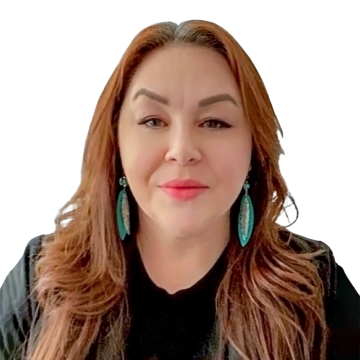Shanda Poitra
2023 Bush Fellow

Shanda Poitra (Anishinaabe/Ojibwe Turtle Mountain Band of Chippewa) wants to create a culture where Indigenous people see safe and healthy relationships as the norm. She found her calling when she took a self-defense course in college. Empowered by that experience, she has made it her life’s work to teach Native women and girls that they deserve to be safe and to help them develop tools to protect and advocate for themselves. A nationally recognized leader of the first Indigenous-led IMPACT self-defense program, she is bringing the program she adapted for her Turtle Mountain community to a growing number of tribes and Native organizations. To leverage her experience and become more effective at designing and leading abuse prevention and survivor healing throughout Indian country, she will pursue a degree in Ogimaawiwin (leadership) and management. She also will travel to meet with and learn from leaders of other abuse prevention organizations throughout the country.
What has informed your approach to leading change in your community?
My approach is informed by the stories that I hear while teaching IMPACT self-defense classes to my community. We have conversations at the end of the program where people share vulnerable personal stories. Those stories fuel me to keep going and fighting for our Indigenous girls, women and two-spirit people.
What interesting skill do you want to learn that’s not related to your Fellowship?
This is so embarrassing, but I really want to learn how to use Excel spreadsheets!
What is your favorite quote or expression?
It’s a quote by Deb Haaland, the first Native person to serve as U.S. Cabinet secretary, “We are not vulnerable, we are targeted. There is a difference.”
We have a history of being conditioned to accept realities that we should be resisting. It wasn’t until the 1970s that we could practice our own ceremonies – and still there’s a lot of people who feel like we still have to be secretive in our practice. We shouldn’t hide. We don’t have to hide our voices any longer. We have been targeted and still are being targeted. Not only with human traffickers, but we have seen Native women being taken advantage of in medical situations as well. Knowing all of this, we need to learn how to say no to people in power.